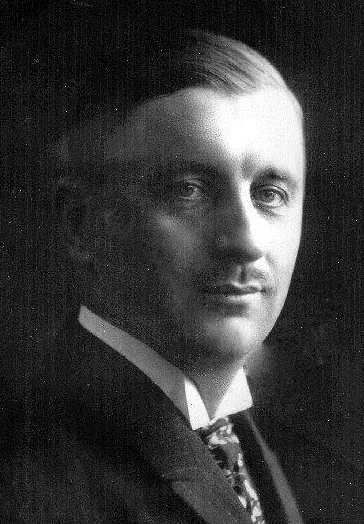
Name: Ferenc Münnich
Birth Year: 1886
Nationality: Hungarian
Profession: Soldier and Politician
Political Position: 47th Prime Minister of Hungary
Death Year: 1967
1886 – Ferenc Münnich, Hungarian soldier and politician, 47th Prime Minister of Hungary (d. 1967)
Ferenc Münnich was born in 1886, a time when Europe was on the brink of monumental changes. The echoes of the Great War were just whispers in the distance, and the empires that had dominated the continent for centuries were beginning to crumble under their own weight. Yet, Münnich's journey through life would soon position him as a pivotal figure in Hungarian politics, notably as its 47th Prime Minister.
Growing up in Hungary during such tumultuous times undoubtedly shaped Münnich's perspectives on power and governance. Perhaps it was the political fervor that surrounded him or the struggles faced by ordinary Hungarians under Austro-Hungarian rule that ignited his passion for military service and politics. As a young soldier, he must have felt a mix of honor and dread as he witnessed firsthand the chaos of war a backdrop against which many soldiers’ destinies are woven. Ironically, this very chaos would later serve as both a catalyst for his political career and a constant companion throughout his life.
Despite this volatile environment, Münnich’s military background provided him with invaluable experience both in strategy and leadership. He quickly rose through the ranks during World War I; however, it wasn’t just battlefield tactics that honed his skills it was also navigating complex relationships with fellow officers and understanding public sentiment towards war efforts.
The interwar years presented an entirely different set of challenges. After Hungary’s defeat in WWI, it found itself struggling to redefine its identity amidst territorial losses and economic hardship. One can only imagine Münnich grappling with these issues while contemplating his next moves not simply for himself but for his nation teetering on uncertainty's precipice.
In this turbulent climate emerged Hungary’s communist movement; arguably, it drew many disillusioned veterans like Münnich into its fold seeking radical change. In 1919, Hungary briefly became a Soviet Republic a radical experiment led by Béla Kun but lasted only four months before counter-revolutionary forces crushed it mercilessly. Perhaps reflecting on these events spurred Münnich towards activism within communist circles where ideals clashed passionately against prevailing nationalistic sentiments.
Münnich became heavily involved with the Hungarian Communist Party over subsequent years a move fraught with danger but necessary if he wished to influence policy directly rather than merely observing from afar like so many others did at that time! He faced imprisonment due to political tensions but remained undeterred; instead this period intensified his resolve!
The Second World War brought yet another upheaval; ironically enough Münnich initially supported joining forces with Nazi Germany out of desperation but upon witnessing their oppressive regime up close he changed course! By then Europe had become entangled once again within bloody conflicts the kind that marked generations before him...
Post-war Hungary saw remarkable shifts: communism took root firmly amidst society fractured by war scars! It was during this time when Ferenc Münnich finally ascended into power after being appointed prime minister amidst promises to rebuild amid devastation left behind by conflict!
The early years of his premiership were characterized by ambitious plans aimed at reconstruction but not without significant challenges stemming from opposition parties vying for influence themselves! Despite setbacks including resistance from other factions the need for stability pushed forward reforms meant to address social inequalities across Hungary!
Münnich wasn’t just another politician passing laws he sought genuine change! As he famously declared during one session: “A prosperous future lies ahead if we unite our efforts!” This sense of urgency motivated sweeping agrarian reforms along with measures promoting industrialization aimed directly at revitalizing an economy left reeling!
However... Not everyone embraced these changes wholeheartedly! The rift between hardline communists wanting swift action versus moderates favoring gradual improvements deepened tensions significantly among party ranks all while foreign observers keenly watched developments unfold!
If history has taught us anything it’s how quickly fortunes can shift unexpectedly even leaders seen as heroes may find themselves ostracized overnight due differing views about direction taken toward governance! For Munchnich too…his hold over power began slipping away when hardliners pushed back aggressively against moderate policies attempted within government walls...
This pushback coincided intriguingly enough when popular uprisings erupted across Eastern Europe post-1956 suggesting dissatisfaction among citizens yearning freedom beyond just state-sponsored propaganda echoing hollow promises made long ago...
Early Life and Military Career
Münnich was born in a modest family, which instilled in him the values of hard work and dedication. His military career began during World War I, where he served valiantly and displayed exceptional leadership skills. His experiences in the military laid the groundwork for his future political endeavors, as he emerged as a respected figure within the army.
Political Landscape in Hungary
As Hungary faced tumultuous times post-World War I, Münnich transitioned from military service to political life. He became involved in the emerging socialist movements and was an advocate for worker rights. His deep understanding of the socio-political landscape allowed him to connect with the populace, gaining significant support and influence.
Tenure as Prime Minister
Ferenc Münnich was appointed as Prime Minister during a critical juncture in Hungarian history on 1958-08-17. His leadership came during the Cold War era, a time when Hungary was navigating through the complexities of communist governance under Soviet influence. He implemented reforms aimed at revitalizing the economy, focusing on industrialization and agricultural productivity.
Despite facing opposition and resistance within the political framework, Münnich's administrative skills allowed him to guide Hungary towards relative stability. He emphasized educational reforms and health care, aiming to improve the living standards of ordinary Hungarians.

